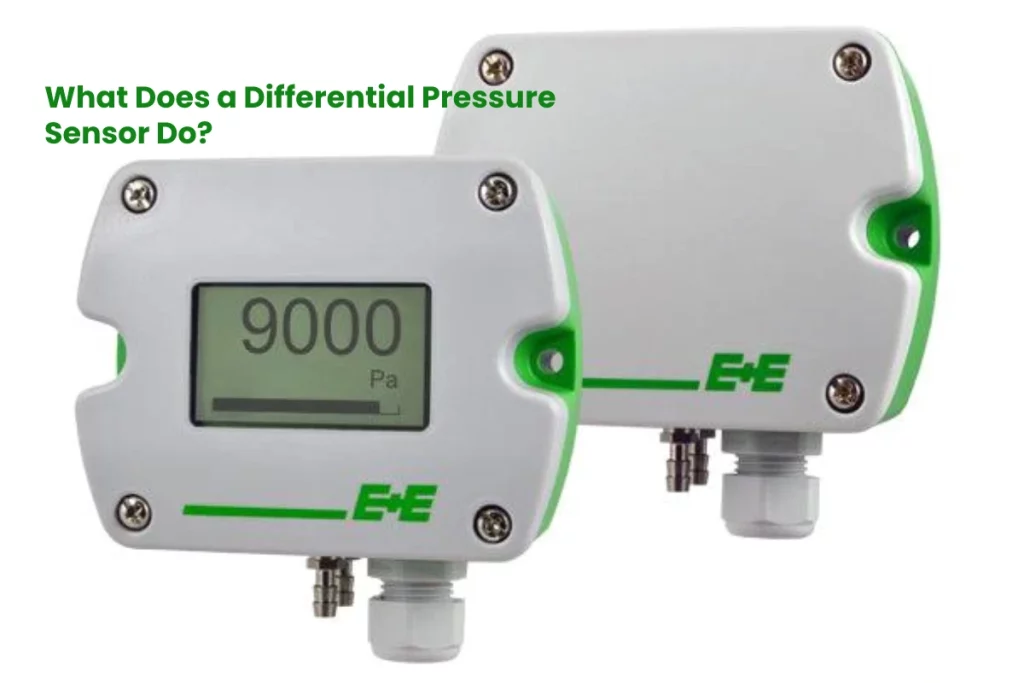As the wheel of engineering and industrial processes spin, the relevance of differential pressure sensors is becoming manifest. It’s the go-to when you think about precision on pressure reading. So how about we go through what the differential pressure does?
Table of Contents
Mechanics behind Differential Pressure Sensors
Well, a differential pressure is the gap between 2 units of pressure. So, the sensor, in this case, will obtain a reading on the flow rate, fluid, or gas level and provide insights into the filter condition.
So, this comprehension of the pressure differences between two points gives you an insight into the performance of different processes.
These sensors normally are made of silicone or germanium. They can change their electrical resistance when exposed to mechanical stress or pressure.
This resistance is recorded and sent to your systems for the corresponding pressure reading interpretation.
The Functions of Differential Pressure Sensor
Now that you understand the working rationale of differential pressure sensors. Let’s head down to the functions. They are not just determining flow rates or monitoring filters and systems.
No, you may use them to detect leaks and optimize your HVAC systems. Check out below.
Measurement and Monitoring
You may install a differential pressure sensor on your pipes, tanks, or any other unit with gas or fluids inside.
Their main work will be to obtain pressure readings, surges, and obstruction between two regions. Such information may be useful when optimizing oil and gas industry processes and pipeline networks.
Rate of Flow Measurement
Differential pressure sensors’ primary use is to show the flow rate of gas and liquids. Here is where the principle of Bernoulli’s equation comes in.
It’s the principle on which the sensor calculates the flow rates based on pressure drops across a restriction orifice. As a result, the information attained may be used to guarantee the precision of flow.
Filter and System Monitoring
Normally, getting an eye on your filter systems takes a lot of work. However, Your HVAC systems may require frequent servicing if left unchecked.
As such, the differential pressure sensor may be deployed to monitor the situation and provide feedback on how efficiently the systems are running or how they are clogged.
Again, in industries, the sensors can monitor pressure changes throughout the filter medium and allow you to do on-time maintenance or replacements.
Leak Detection
It’s easier for differential pressure sensors to detect leaks by obtaining pressure readings and differences across sealed systems and pipelines. If readings on pressure differences drop, it could mean a leak. Such variations, even when minor, can help prevent catastrophic events and environmental issues.
HVAC Optimization
Almost every HVAC systemdepends on differential pressure measurement sensors to maintain optimal airflow and filter conditions. The working rationale is to monitor surges across filters and ensure a seamless airflow.
Further, they regulate the pressure within the HVAC ductwork. This optimizes the system’s performance and provides a comfortable residential, commercial, and industrial environment.
What are the Differential Pressure Sensors’ Benefits?
Accuracy and Reliability
Differential pressure sensors are highly accurate and reliable. They are purported to give accurate pressure reading even in an unconducive environment.
On the other hand, their construction and advanced technology guarantee consistent performance and productivity.
They remain vital in applications that value accurate pressure readings, such as oil and gas.
Real-time Monitoring
Imagine if you head to physically get your eye on the pressure meters of your industrial systems. That will take too long.
However, differential pressure sensors are fixed within these systems, and as such, they provide feedback instantly should there be any changes in your system.
This means you get to control and address faults on time and improve the system’s performance.
Versatility and Adaptability
Differential pressure flexibility and versatility mean you can use them for different applications. Customization may see them meeting the requirements of reading pressure changes, connection, and output signals.
So, be it the automotive, aviation, health, or manufacturer realm, they can be customized to suit diverse needs.
Wrap Up
The role of differential pressure, whether you are just an engineer or an industrial project manager, should not be taken lightly.
Measurement of pressure differences can tell if there are leaks, bad flow, or damaged filters in your system.
Acting on these events can help save lives, the environment and minimize financial losses.
However, you can only achieve this with an accurate differential pressure sensor. If you are interested in getting one, try MicroSensor.

